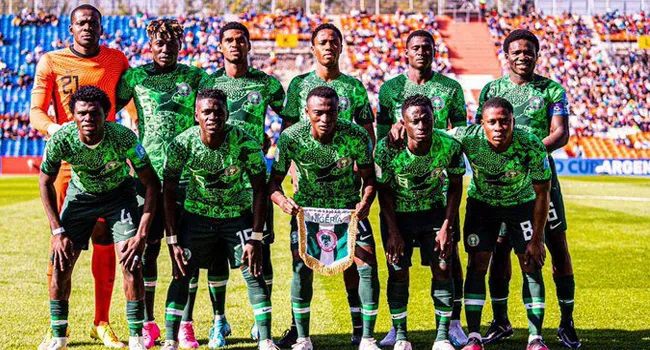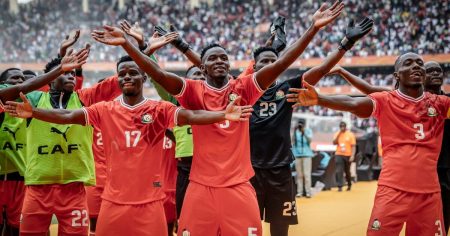The Stakes are High: Nigeria and South Africa clash in crucial 2026 World Cup qualifier
The FIFA World Cup, the pinnacle of international football, brings together nations from every corner of the globe to compete for the coveted title. The qualification process is a grueling journey, with teams battling it out in continental confederations to secure their spots in the final tournament. In Africa, the race to the 2026 World Cup, jointly hosted by the United States, Canada, and Mexico, is heating up, and a crucial encounter between Nigeria and South Africa is set to take center stage. This pivotal match, scheduled for September 9, 2025, at the Toyota Stadium in Bloemfontein, South Africa, will have significant implications for both teams’ hopes of reaching the global stage.
FIFA, the world football governing body, recently confirmed the details of the match, including the venue and kick-off time. The Toyota Stadium, a historic venue with a capacity of 46,000, holds special significance for South African football, having hosted matches during the 2010 FIFA World Cup. The stadium, formerly known as Vodacom Park and later Free State Stadium, has witnessed numerous memorable sporting moments and will provide a fitting backdrop for this crucial encounter. The match will kick off at 5 pm Nigerian time, setting the stage for a prime-time clash between two of Africa’s footballing giants.
The significance of this Group C matchday eight fixture cannot be overstated. With South Africa currently leading the group with 13 points from six matches and Nigeria trailing in fourth place with seven points, the outcome of this match could significantly reshape the group standings. Only the top team in each group will secure automatic qualification to the World Cup finals, while the runner-up will have a second chance through the CAF play-offs and potentially the inter-confederation play-offs. For Nigeria, a victory is crucial to keep their qualification hopes alive and close the six-point gap on South Africa. A defeat, on the other hand, would severely dent their chances of reaching the World Cup.
South Africa, seeking a return to the World Cup after their last appearance in 2010, are determined to capitalize on their home advantage and solidify their position at the top of the group. Having accumulated 13 points from their first six matches, they are in a strong position to secure automatic qualification. Nigeria, despite a disappointing start to their qualifying campaign with only one win, four draws, and one defeat, still harbor hopes of reaching their seventh World Cup finals. The Super Eagles, three-time African champions, are eager to make amends for their failure to qualify for the 2022 edition in Qatar.
The two teams met earlier in the qualifiers in June, with the match ending in a 1-1 draw in Uyo, Nigeria. Themba Zwane opened the scoring for South Africa before Fisayo Dele-Bashiru equalized for Nigeria early in the second half. This previous encounter adds another layer of intrigue to the upcoming clash, with both teams aiming to secure a crucial victory this time around. The match promises to be a closely contested affair, with both sides boasting talented players and passionate fan bases.
Beyond the immediate implications for World Cup qualification, this match also carries symbolic weight. Nigeria and South Africa are two of Africa’s footballing powerhouses, with a rich history of rivalry and competition. Their encounters always generate significant interest and excitement among fans across the continent. The upcoming match in Bloemfontein is expected to be no different, with the atmosphere charged with anticipation and national pride.
For Nigeria, the September double-header presents a crucial opportunity to revive their World Cup qualification hopes. Before facing South Africa, the Super Eagles will host Rwanda in Uyo on September 6. Securing maximum points in both matches is crucial for the team to climb up the group standings and put pressure on South Africa. Following the September fixtures, Nigeria will face Lesotho away and then conclude their qualifying campaign with a home match against Benin in October. These final two matches will also be crucial in determining the final group standings.
The road to the 2026 World Cup is long and arduous, and the match between Nigeria and South Africa represents a defining moment in both teams’ journeys. The outcome will have far-reaching consequences, shaping the narrative of their respective campaigns and potentially determining their World Cup destinies. The Toyota Stadium in Bloemfontein is poised to witness a battle of epic proportions, a clash of titans that will captivate the hearts and minds of football fans across Africa and beyond.













